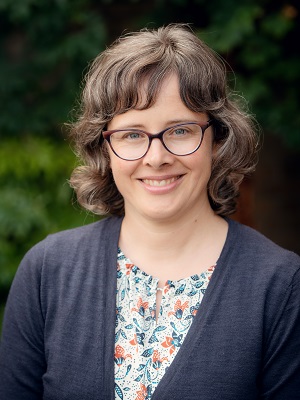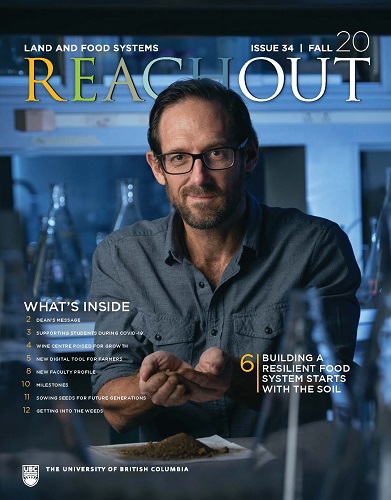New Faculty Profile: Risa Sargent

Risa Sargent joined the Faculty in July 2020 as an Associate Professor in the Applied Biology program. Previously, she was an Associate Professor at the University of Ottawa. She has a BSc from the University of Calgary, and a MSc from Simon Fraser University, where she studied the timing of pollen production and stigma receptivity as a mechanism to prevent selffertilization, particularly in fireweed.
She completed her PhD at UBC with the Biodiversity Research Centre, where her research took a macroevolutionary turn.
“I was interested in the role animal pollination could have played in driving specialization and diversification in flowering plants,” says Sargent. “The theory of animal pollination may help answer why there are so many flowering plant species in comparison to conifers.” She was also a postdoctoral research associate at the University of California, Berkeley, where she took a more community approach to understand why certain plant species can co-exist, and the role that pollination may have in it.
Sargent’s current research focuses on how ecological context impacts plant-pollinator dynamics.
“There are around 450 species of bees in B.C., and around 800 in Canada. They are found everywhere, in gardens, parks, agricultural areas, forests and natural areas,” says Sargent. A large percentage of the food we produce in agricultural areas is reliant on bees. Key crops that at least partly rely on wild bees for pollination include cherries, peaches, apples, blueberries, squash, tomatoes, and many more. Even in plants that we do not eat the fruit of the crop (e.g., carrots, lettuce, beets), bees are important if we want to save the seeds for future plantings.
Yet for such an important species, we have very little data about them. “About 90% of the bee species in B.C. are solitary, meaning they do not live in colonies or hives,” says Sargent. “A solitary female bee will raise her young in cavities dug into the ground or sometimes in wood or other plant debris, depending on the species. This makes it difficult to study them, but there is a general concern that they are at risk. One of their primary threats is the conversion of wild lands to agriculture and urban use, which is where my lab’s current research lies.”
Canada is a good place to study this, as wild areas are regularly urbanized by our growing cities. “We should be asking ourselves, could we design cities and the landscapes around cities to provide better habitat for bees? Actions such as banning urban pesticide use that harm both pests and beneficial insects, or planning strategies that would dedicate more to wild habitat, would be very beneficial to bees and other species, like birds and butterflies,” says Sargent. “Cities that harbour a high diversity of wild species also tend to be nicer to live in.”
That would be good news for city dwellers with backyard or balcony gardens, which also rely on bees for pollination.
Tagged with: Faculty
